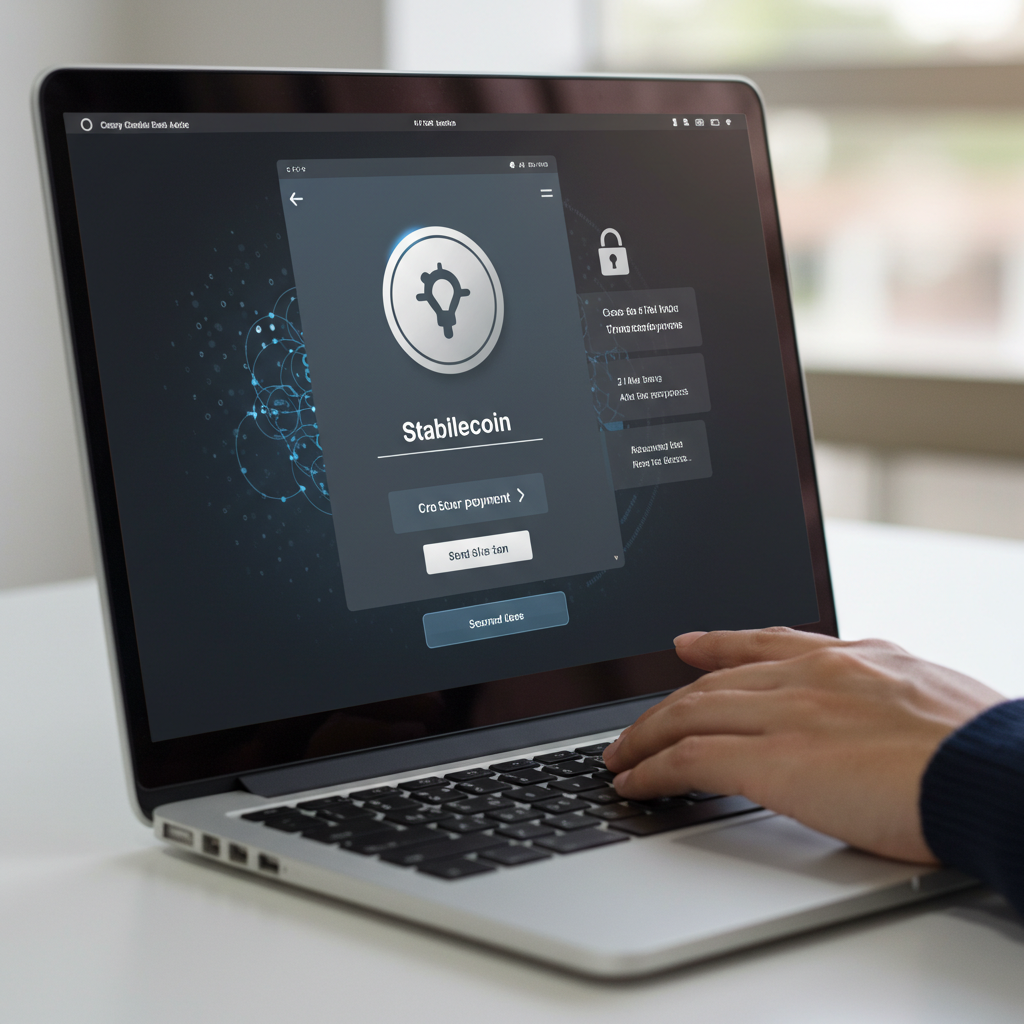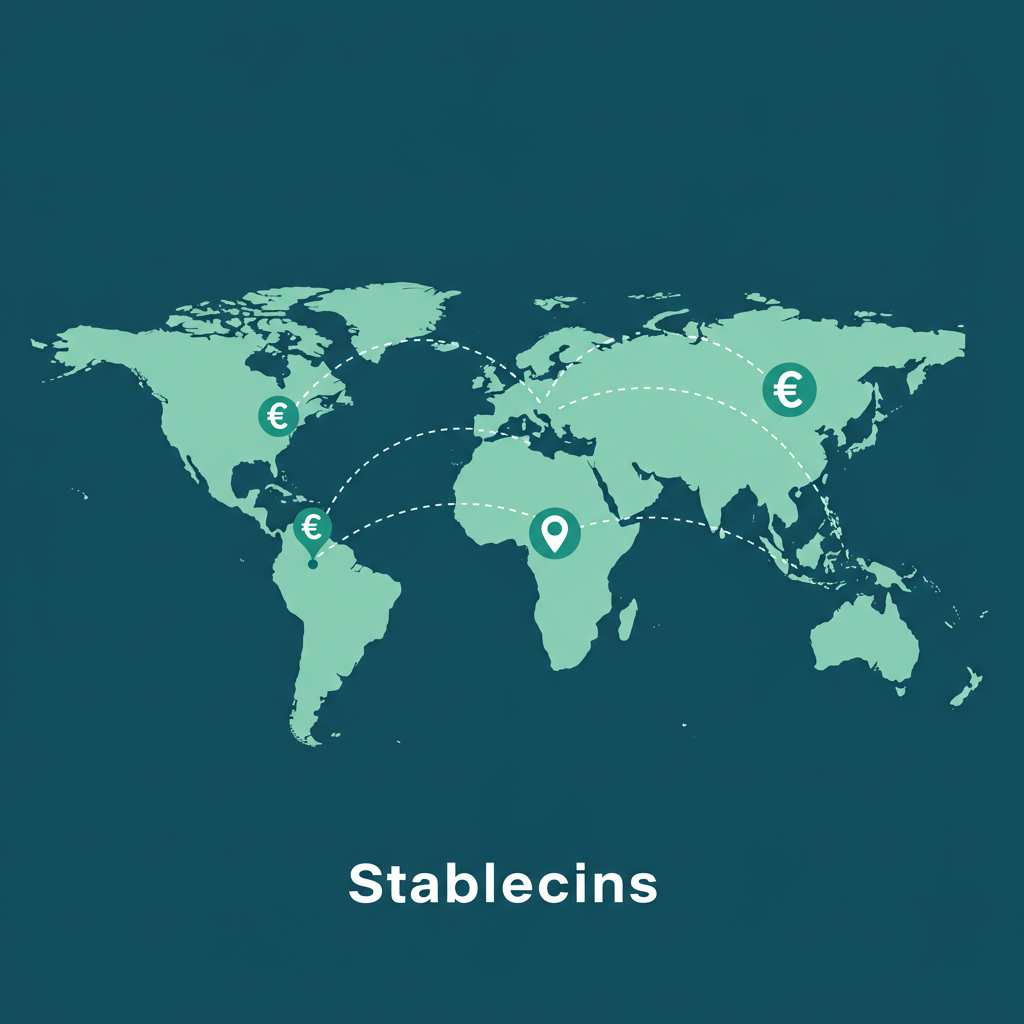
Stablecoins are rapidly transforming the landscape of international payments by providing a reliable, efficient and cost-effective alternative to traditional banking methods.
This guide will break down the essentials of stablecoins, explore their numerous advantages and provide a detailed, step-by-step process for utilizing them effectively in cross-border transactions.
What Are Stablecoins?
Stablecoins are a specific category of cryptocurrencies designed to maintain a stable value by being pegged to reserve assets, typically established fiat currencies like the US Dollar. This peg helps mitigate the price volatility often seen in cryptocurrencies like Bitcoin and Ethereum, making stablecoins particularly suitable for everyday transactions and financial activities.
Some Popular Stablecoins
There are several established stablecoins on the market, each with unique characteristics:
- USDT (Tether): As one of the earliest stablecoins, USDT is pegged to the US Dollar and enjoys extensive use in both trading and payment systems across various exchanges.
- USDC (USD Coin): This stablecoin is known for its backing by fully audited reserves, offering exceptional transparency and regulatory compliance, making it a favorite among financial institutions and users who prioritize trustworthiness.
- DAI: Distinct from its counterparts, DAI is a decentralized stablecoin that stands apart by being backed by a diverse pool of cryptocurrency assets, providing users with more control and privacy over their holdings.
Why You Should Choose Stablecoins for Cross-Border Payments?

Adopting stablecoins for cross-border transfers presents a multitude of compelling benefits:
- Low Transaction Fees: Traditional remittance services and banks often impose transaction fees that can range from 5% to 10% of the total amount being transferred. In stark contrast, stablecoin transactions typically incur minimal fees, often just a few cents, especially when leveraging efficient blockchain networks. This dramatic reduction in costs makes stablecoins an attractive option for individuals and businesses alike.
- Speedy Transactions: The conventional banking system’s slow processing times can make international money transfers cumbersome, often taking several days to complete. Stablecoin transactions, however, can be finalized in mere minutes, regardless of geographical barriers. This speed is crucial for users who need immediate access to funds.
- Enhanced Accessibility: For individuals without access to traditional banking services, stablecoins act as a gateway to financial inclusion. All that is required is a smartphone and a crypto wallet, eliminating the need for formal identification and bank accounts. This means that the underbanked populations can transact freely and securely.
- Shield against Inflation: In economies where local currencies are prone to rapid devaluation, such as Nigeria with its fluctuating Naira value, stablecoins serve as a stable store of value. By pegging to more robust currencies like the US Dollar, stablecoins provide individuals with a reliable means to preserve their wealth against local inflationary pressures.
- Widespread Acceptance: The adoption of stablecoins is expanding across various platforms, ranging from international businesses to e-commerce sites. This growing acceptance enhances the practicality of stablecoins for cross-border transactions, allowing users to transact seamlessly across different regions and industries without the fear of currency conversion issues.
Step-by-Step Guide to Using Stablecoins for Cross-Border Payments
- Choose Your Stablecoin: Choosing the right stablecoin is pivotal for successful transactions. Evaluate your needs along with those of your recipient. USDT and USDC tend to be the most accepted stablecoins, while DAI might be more suitable for users who prioritize decentralization and privacy in their transactions.
- Create a Crypto Wallet: A crypto wallet is essential for storing and managing your stablecoins securely.
- Hot Wallets (Online): These wallets, such as Trust Wallet or MetaMask, allow for easy and quick access, making transactions straightforward. However, they may be more vulnerable to hacking.
- Cold Wallets (Offline): More secure options, including hardware wallets like Ledger or Trezor, provide enhanced protection by keeping your assets offline, shielding them from cyber threats.
- Purchase Stablecoins: To acquire stablecoins, choose a reputable exchange such as Binance, Coinbase, or local platforms like Bundle Africa that support Naira deposits. Review the fees and exchange rates offered by each platform to ensure the most favorable terms. Send Stablecoins to Your RecipientI, initiate the transfer process by following these simple steps.
- Obtain the recipient’s wallet address, making sure it is correct and compatible with the stablecoin you are sending. Input the recipient’s address and the amount to be sent in your wallet. If your wallet offers options, select a blockchain network that is known for low transaction fees and high processing speeds, such as BNB Chain or Tron.
- Enable Recipient’s Currency Conversion, once the recipient has received the stablecoins, they can convert them into their local currency using various methods, including reputable crypto exchanges or peer-to-peer platforms. Many of these platforms facilitate direct withdrawals to local bank accounts, ensuring a seamless transition from cryptocurrency to fiat currency.
Strategies to Reduce Fees When Using Stablecoins
Opt for Low-Cost Blockchain Networks: Avoid Ethereum during peak times when gas fees can be exorbitant. Instead, consider utilizing cheaper networks like BNB Chain, Solana, or Tron, which typically offer lower transaction costs.Utilize Peer-to-Peer Exchanges, platforms like Binance P2P enable users to buy and sell stablecoins directly with one another. This method often incurs much lower costs as it eliminates intermediaries.
Bypass Middlemen: Conduct transactions directly using trusted wallets to avoid incurring additional fees from third parties. If you frequently send payments, consider batching your transactions together to save on cumulative fees, making your financial activities more efficient.
Challenges and Their Solutions
Regulatory Uncertainty: The regulatory landscape for cryptocurrencies can be unpredictable especially in a country like Nigeria, leading to concerns about the legality of stablecoin transactions.
- Solution: Always use compliant platforms and stay informed about local cryptocurrency regulations to ensure legal adherence.
Learning Curve: The complexity of cryptocurrency technology can seem challenging for newcomers.
- Solution: Start with beginner-friendly wallets and exchanges that offer educational resources and customer support to help you navigate the technology with ease.
Security Risks: The irreversible nature of crypto transactions can expose users to scams and fraud.
- Solution: Verify all wallet addresses prior to sending funds, and employ two-factor authentication on your accounts for an extra layer of security.
Real-World Use Cases of Stablecoins in Nigeria

- Remittances: Families abroad can send money home quickly and at low costs, providing crucial financial support to relatives in Nigeria.
- Freelancing: Freelancers and independent contractors can accept international payments effortlessly, thus widening their client base without incurring steep fees.
- E-Commerce: Businesses can make international purchases and sales using stablecoins, which streamline cross-border transactions and enhance cash flow.
- Savings: Individuals looking to protect their wealth from inflation can store their funds in stablecoins, effectively planning for future financial needs.
Conclusion: Stablecoins represent a transformative solution for cross-border payments, particularly for Nigerians seeking to reduce costs, enhance speed, and enjoy greater accessibility in financial transactions. By adopting stablecoin technology, individuals and businesses can effectively navigate the limitations of traditional payment systems while gaining increased financial autonomy and security. Embrace the world of stablecoins today and unlock a new realm of seamless and economical international transactions.



